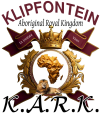The story of Klipfontein
A Beacon of Self-Governance and Resilience
Tucked away in the heart of the Western Cape, South Africa, lies the historic settlement of Klipfontein. This vast territory stretched from the picturesque town of Botrivier in the south, encompassing the entire area of modern-day Cape Town, and extending all the way to the charming town of Mamre in the north, encompassing a vast and fertile vallies.
For centuries, Klipfontein was the proud homeland of the Korana people, one of the five recognized tribes of the First Indigenous People of South Africa. The other four main tribes are the Khoikhoi, San, Griqua, and Nama.
Klipfontein was a sovereign state, ruled by a king, who was advised by a council of chiefs. This monarchal system of governance allowed the Korana people to maintain their independence and self-governance for centuries.
Klipfontein was strategically positioned as a major trade post, where all business transactions took place, connecting various stations and facilitating commerce throughout the region.
Interestingly, the Korana people of Klipfontein were responsible for planting Rooikrans wood, a highly valued wood in modern times, on numerous farms throughout the area. They also cultivated and utilized "riete" (reeds) for various purposes, including roofing, canopies, and constructing traditional "rondaweljies" (round huts) with "riethuisjes" (reed houses) and "rietdakke" (reed roofs).
Long before the arrival of European settlers, Klipfontein boasted its own administration, church, police station with holding cells, school, and post office. This impressive infrastructure is a testament to the ingenuity and resilience of the Korana people.
Today, Klipfontein remains a sacred site, home to ancestral burial grounds dating back to the 1400s. The remains of the Korana people's forefathers lie in these graves, a poignant reminder of their rich cultural heritage and historical significance.
As the centre of the Cape Colony, Klipfontein played a vital role in the region's history, serving as a strategic meeting point for trade, commerce, and cultural exchange. The Korana people developed a rich cultural heritage, built on a deep understanding of the land, its resources, and the delicate balance of the ecosystem.
Their expertise in herding, hunting, and gathering allowed them to live in harmony with the environment, while their traditions and customs continue to inspire and educate us today. As we reflect on the history of Klipfontein, we honor the legacy of the Korana people and their remarkable achievements.
The post office, Church, Holding cell, Charge office are still there but changed to homes
Copyright © 2025 . K.A.R.K.. All rights reserved
